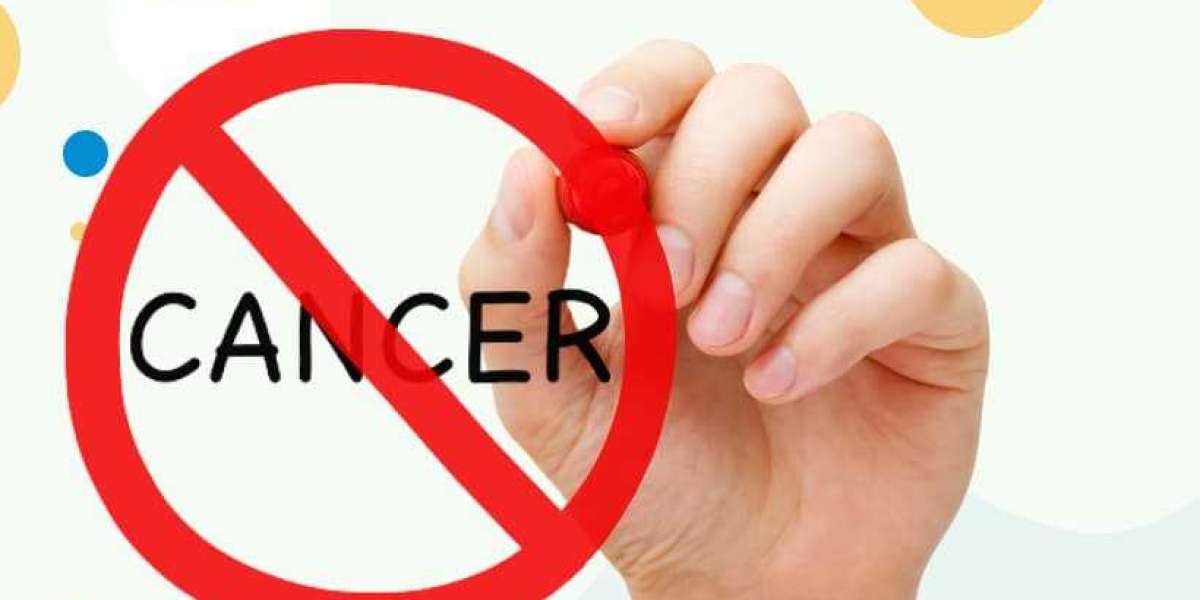We live in a quick world these days. Stress is something we can't dodge. A bit of stress? Normal. But nonstop stress? That can harm our health and even increase the odds of diseases, including cancer. Stress and cancer? It's a hard link to untangle. Stress alone can't directly spark cancer. But it can nudge people towards habits and body changes that can.
Constant stress can attack the immune system, mess with normal body functions, and push folks to unhealthy choices. Things like smoking too much, drinking a lot, and eating poorly. All of these can bump up the chance of cancer. So, it’s not just about looking after our minds when we handle stress. It's also about stepping up against cancer. This blog by expert doctors from the Best cancer hospital in India talks about handy ways to tackle stress. These can be a key part of stopping cancer before it starts.
Understanding Stress and Cancer
Stress and cancer risk are deeply linked. It's an area in which many medical experts have a keen interest. Stress doesn't cause cancer directly. But, its side effects on the body may raise the chances of getting the disease. This connection involves diverse biological reactions and life habits.
The Biological Impact of Chronic Stress
Long-term stress spurs a wave of hormonal changes, mostly causing cortisol and adrenaline to surge. These hormones from stress may interfere with normal bodily actions in many ways. A big effect of ongoing stress involves the immune system. Stress can dampen immune abilities, making it harder for the body to find and kill off irregular cells, like those that could cause cancer.
If the immune system's not as strong, it's tougher for it to spot and repair cell harm, perhaps letting harmful cells grow in number. Also, lasting stress can stir up inflammation. Despite inflammation being a normal immune reaction, if it sticks around too long, it may pave the way for cancer. It may spur the expansion and distribution of cancerous cells, making the body more likely to get sick.
Lifestyle Factors and Stress-Induced Behaviors
The relationship between stress and cancer also encompasses aspects of lifestyle choices, including habits, that people are exposed to. People under chronic pressure, by resorting to ill mechanisms, develop behavioral trends that are not desirable. They may include the use of cigarettes, filling in alcohol, unhealthy food habits, and being physically idle. All of these activities are known risks for cancer. For example, smoking is a major risk factor for lung cancer, and alcohol consumption contributes to liver and breast cancer.
In addition, stress causes obesity, another major risk factor for cancer. Stress also stimulates hormonal alterations that affect metabolism and fat storage, while under the influence of such stressors, an individual may use high-calorie discomfort foods likely to increase weight. Obesity carries with it the risk of several cancers, such as endometrial, breast, and colorectal.
Psychological Stress and Cancer Progression
Additionally, there is considerable evidence pointing to the possibility that mental stress can affect cancer development. The conditions of stress can alter tumor growth and metastasis by influencing the systemic hormonal balance as well as the immune response. Cancer patients with a high level of stress may have a different prognosis compared to other people who suffer from less severe levels of the same disease; however, this direction is still under development.
Tracking Stressors
It is illuminating to keep a record in which one notes stressors. Knowing the triggers of stress and your response to them, you will find ways in which these challenges can be better directed.
Developing Healthy Responses
In that case, a person should learn how to relax in order for their stress responses to become healthy. Methods such as deep breathing, meditation, or yoga may be particularly potent.
Taking Proactive Action
Proactive stress management means being in full control of the situation rather than merely reacting. This includes workload management and ensuring that you are committed, as this may lead to burnout, resulting in stress.
Scheduling for Balance
Having a mix of work, fun, and sleep can really cut down on stress. Take regular breaks. It's key for your mind and body to rest.
Adjusting Your Attitude
The doctors at the Best Ayurvedic cancer hospital in India say maintaining a positive attitude and staying in the present can help manage stress. Positive self-talk and visualizing manageable scenarios are useful techniques.
Seeking Support
If you're swamped, consider talking about your tasks to your boss or getting help from your friends and family. Others' backing can do wonders for handling stress.
Self-Care for Cancer Prevention
Self-care is key to lowering the chance of cancer. This means staying away from substances and alcohol, consuming fresh fruit, veggies, and grains, and keeping fit and active.
Creating a Comfortable Work Environment
A comfortable and conflict-free work environment can significantly reduce stress. Establishing positive pre-work rituals can also help start the day on a good note.
Being Realistic and Rewarding Yourself
Aim for attainable targets. Organize your schedule wisely. Congratulate yourself when you hit those targets, whether big or small.
Relaxation Techniques
Include easy-to-do relaxation activities in your day. Like reading, brewing a cup of tea, some focused breathing, or a brief stroll. These help to take a breather and lower stress.
Conclusion
We are so, managing stress matters. It's key for health and could help keep cancer away. This blog has talked about several ways to handle stress. From figuring out what causes your stress to choosing healthy ways to deal with it, from making sure you have a balanced schedule to taking care of yourself - these aren't just stress-busters. They're part of living healthily. And they could help lessen your chances of getting cancer.
Remember this: we might not be able to control everything that stresses us, but we can control how we handle it. Choosing to deal with stress wisely can create healthier habits. It can make our immune system stronger. It can cut down the risk of cancer. Overall, it's about getting a bigger picture of health - where dealing with stress is important. Taking this approach could mean a healthier, more balanced life. And possibly even less chance of cancer.








